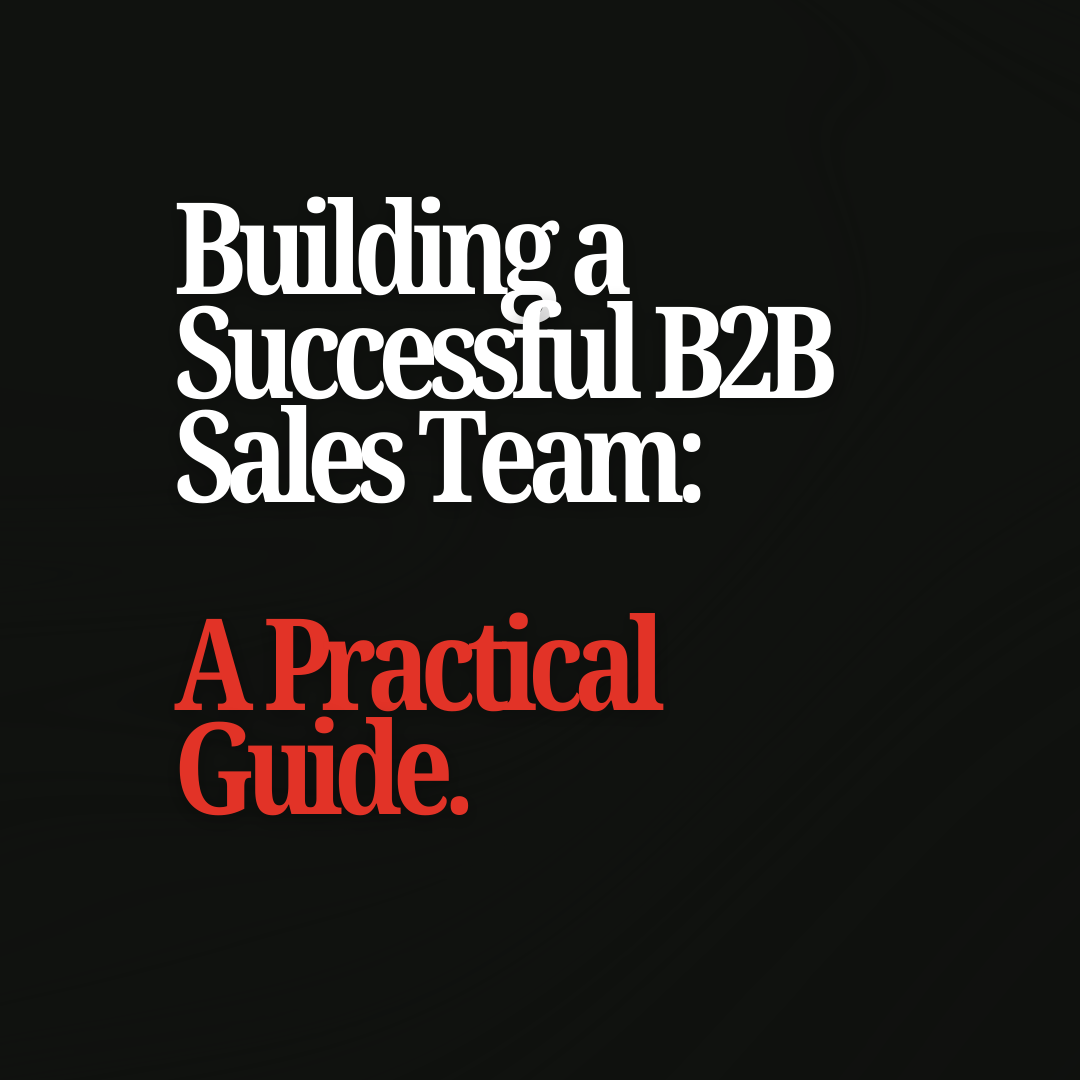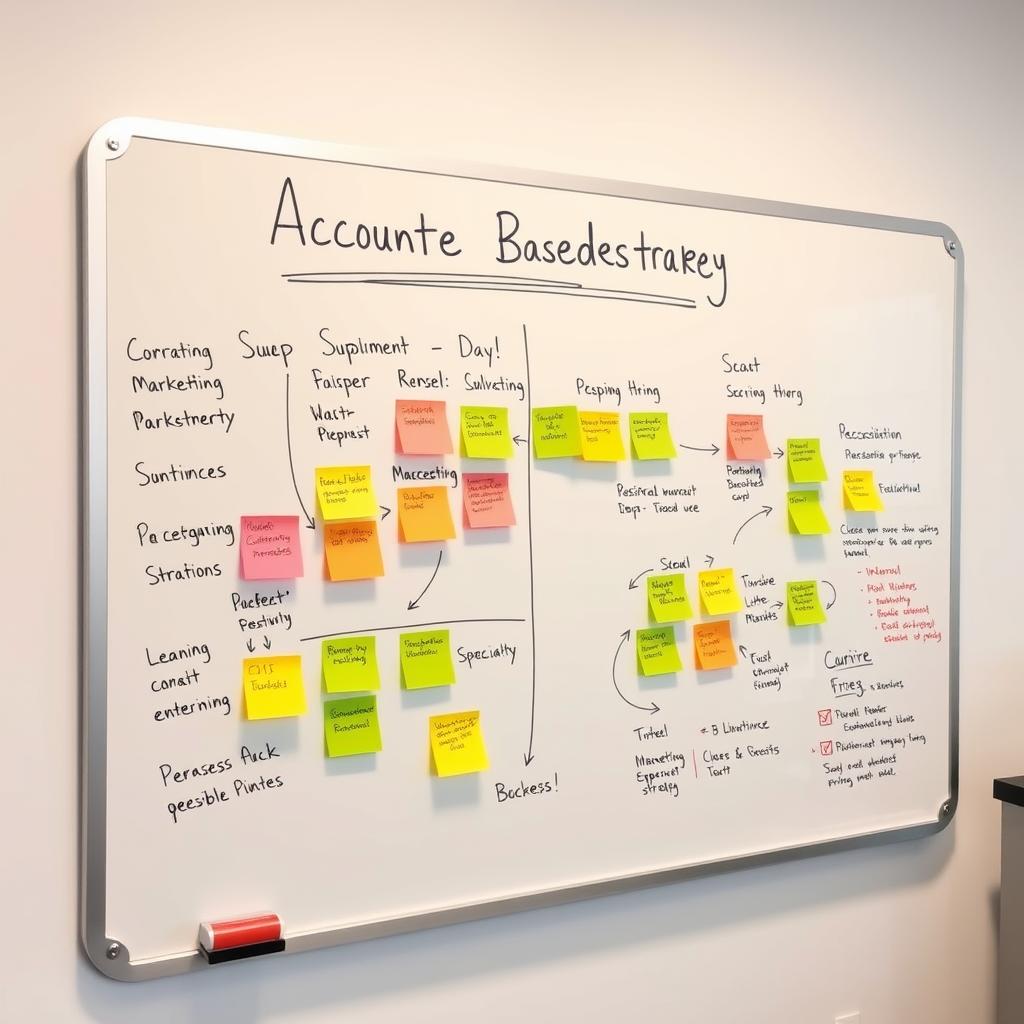Creating a highly effective and sustainable B2B Sales Team can sometimes feel like searching for a rare gem. You might put in all your effort but still fall short of the growth you desire. Or worse, you might find some success but feel stuck, unable to scale up and deliver consistent results. If this sounds familiar, don’t worry—you’re not alone. Many businesses face similar challenges when navigating the competitive B2B landscape.
The key to overcoming these challenges lies in having a structured approach to building your sales team. From crafting a replicable sales playbook to implementing a robust hire-to-retire lifecycle, these elements will help you unlock consistent growth and set your business apart.
Step 1: Understanding Your Market & Defining Goals
Every successful B2B Sales Team begins with a thorough understanding of its market. Without this foundation, it’s like setting sail without a compass—you may move, but you’ll have no clear direction. Start by gathering insights into your prospective clients, identifying where your product fits in their needs, and studying your competition.
- Conduct Competitor Analysis: Know who your competition is, what they offer, and how they sell.
- Identify Business Opportunities: Look for gaps in the market that your product can fill.
- Benchmark Best Practices: Study what successful companies in your industry are doing right.
- Define Clear Goals & KPIs: Goals should be clear, measurable, and aligned with your company’s vision.
SMART Goals in Action:
One thing all B2B sales teams need is a clear understanding of what they’re aiming for. SMART goals (Specific, Measurable, Achievable, Relevant, Time-bound) are key to driving productivity. By setting specific targets, your team can better align its efforts with broader business objectives.
For more on how to implement this approach, Forbes provides insights on how to build a high-performing B2B sales team by understanding your market and setting clear, measurable goals read more here.
Step 2: Designing a Customized Sales Playbook
Your sales playbook is the backbone of your sales strategy. It should be a living document that outlines everything from sales scripts and case studies to detailed competitor information and best practices. Think of it as a road map that guides your team through every phase of the sales process.
Sales Playbook in Action:
When we ventured into a new market, having a well-crafted playbook helped us avoid unnecessary setbacks. It was our guide, detailing not just the next steps but also potential pitfalls, helping the team stay consistent and focused.
The playbook’s contents should evolve with your market and customers. HubSpot offers a useful guide on building a sales team playbook that can help you structure yours effectively check it out here.
Step 3: Building and Training Your Sales Team
Building a successful B2B sales team requires more than just hiring people with the right skills; you need to foster a culture of learning and adaptation. In the B2B space, where sales cycles are long and transaction sizes large, your team must be well-equipped to handle complexity and think strategically.
Key Areas to Focus On:
- Hiring the Right Talent: Look for skills, attitude, and potential that align with your company’s vision.
- Training Your Team: Sales training should be an ongoing process, not a one-time event.
- Motivating Your Team: Incentivize performance, recognize effort, and provide continuous learning opportunities.
War for Talent:
Finding the right talent can feel like going to battle. The competition for top sales talent is fierce, and you need to stand out as an employer. Once you hire the best, the work has just begun. Constant coaching and providing the right tools and feedback are essential for your team’s success.
Step 4: Leveraging Technology and Tools
Today’s sales teams must be equipped with the right technology to stay competitive. This includes CRM software, predictive analytics tools, and automation to streamline processes, manage leads, and improve customer interactions.
Tech Tools in Action:
The effective use of CRM platforms can help sales teams track interactions and predict when customers are ready to make a purchase. This not only saves time but also ensures that your team is pitching the right solution at the right time.
For a more in-depth understanding of the right tools and processes to drive sales, check out HubSpot’s detailed guide on optimizing your sales tech stack learn more here.
Conclusion
Building a high-performing B2B sales team takes time, consistency, and a clear strategy. By understanding your market, setting clear goals, designing a comprehensive sales playbook, and providing your team with the right tools and training, you’ll position your business for long-term success. As legendary hockey player Wayne Gretzky once said, “A good player plays where the puck is. A great player plays where the puck is going to be.” Build your team to anticipate the future needs of your market, and you’ll always be one step ahead of your competition.
Looking for more ways to supercharge your B2B sales team? Visit www.sdr.consulting for expert advice and services tailored to your business needs.



